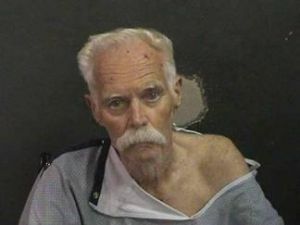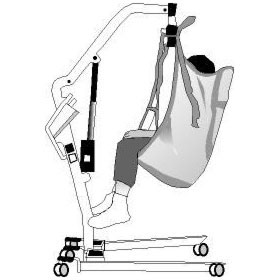An 81-year-old nursing home resident beat his 94-year-old roommate to death with a closet rod in their Laguna Hills nursing home. Sheriff’s have arrested William McDougall of Mission Viejo for causing the death, and he has been booked for murder. The victim, Manh Van Nguyen of Laguna Woods, was pronounced dead upon arrival to Saddleback Memorial Hospital.
 The motive in the killing is unclear. Both men were residents at Palm Terrace Healthcare and Rehabilitation Center, a licensed skilled nursing facility in Laguna Hills. (More info about the facility here) “What prompted the attack is still under investigation. Obviously, this is very unusual,” sheriff’s spokesperson Jim Amormino told the media. Staff at the nursing home have apparently told sheriff’s investigators that there no prior conflicts between McDougall and Nguyen.
The motive in the killing is unclear. Both men were residents at Palm Terrace Healthcare and Rehabilitation Center, a licensed skilled nursing facility in Laguna Hills. (More info about the facility here) “What prompted the attack is still under investigation. Obviously, this is very unusual,” sheriff’s spokesperson Jim Amormino told the media. Staff at the nursing home have apparently told sheriff’s investigators that there no prior conflicts between McDougall and Nguyen.
What causes violence such as this in the nursing home? It could be a number of things. First, it is not uncommon for residents with memory impairment such as Alzheimer’s disease to act aggressively toward caregivers and others. Our law firm has represented victims of peer-on-peer abuse in the past. Another possibility is medications. What medications was McDougall on (or not on) that might have contributed to this offense. And, of course, maybe McDougall is just a violent person. No doubt all of this will be uncovered in the criminal investigation, which is just starting.
 California Nursing Home Abuse Lawyer Blog
California Nursing Home Abuse Lawyer Blog






 An investigation by the Department of Public Health revealed that the nursing home, the Eskaton Care Center, failed to properly maintain the lift. The lift, which law required be checked monthly, had not been checked for five years. The DPH report stated that the sling appeared worn and had “what appeared to be bleached out blood stains at the center.”
An investigation by the Department of Public Health revealed that the nursing home, the Eskaton Care Center, failed to properly maintain the lift. The lift, which law required be checked monthly, had not been checked for five years. The DPH report stated that the sling appeared worn and had “what appeared to be bleached out blood stains at the center.” The
The 





